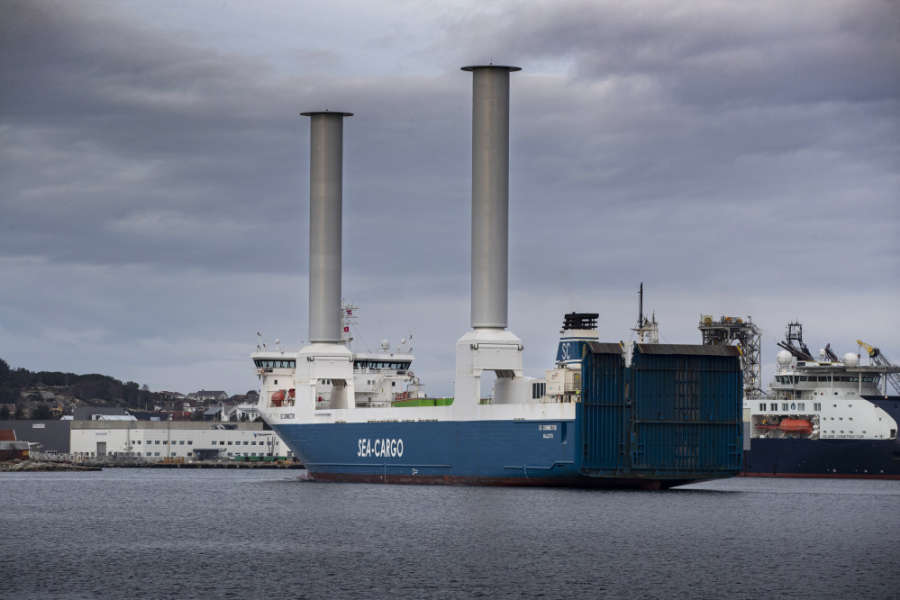A new group of leading maritime technology companies and other prominent maritime organisations have highlighted that the shipping industry is in danger of losing out on a huge opportunity to make impactful and immediate gains in tackling the climate emergency, by only focusing on a narrow set of measures and having a preoccupation with new fuels.
The collaboration – whose initial participants include Airseas, Houlder, NAPA, Norsepower and I-Tech – today called for the industry, including the International Maritime Organization (IMO) and EU, to promote more investment in energy efficiency and renewable propulsion technologies so the maritime industry does not miss the huge and immediate opportunity to save time and money.
Currently, regulations are encouraging the industry to do two things; to derate engines so vessels are forced to slow down and save fuel, and to gradually switch to low and zero carbon fuels – such as green hydrogen, methanol ammonia or biofuels.
However, given the scale and urgency of the climate emergency, the group argues that regulations risk the sector inadvertently ignoring the huge range of innovative clean technologies already delivering significant fuel and emissions savings to the commercial fleet, including, but not limited to wind propulsion, air lubrication, battery energy storage, hull coating technology, hydrodynamic energy saving devices including propeller devices, and voyage optimisation software.
Tuomas Riski, CEO, Norsepower Oy Ltd said: “Given the magnitude of the energy transition challenge, energy efficiency technology has an equally critical role in meeting and exceeding carbon reduction targets as low and zero carbon fuels. There is no need to wait – there are commercially-proven solutions available on the market today. Taking steps now will not only enable vessels to decarbonise faster and improve their ratings under the IMO’s Carbon Intensity Index (CII), it will also help shipowners achieve greater climate alignment compliance scores, specifically for the ship finance portfolios that are underpinned by the Poseidon Principles, or similar frameworks, and Sea Cargo charter clauses.
“Reducing fuel consumption and emissions through wind propulsion, like our Rotor Sails, offers ships the potential to boost their commercial competitiveness and profitability through improving their utilisation prospects from increasingly discerning charterers whilst also maintaining a fully regulatory compliant, attractive asset value. Combining technologies offers even greater advantages. The problem is complicated but there are obvious choices available.”
The group is calling for all shipping stakeholders and international authorities to expand their focus and attention. Long term innovation, research and development and the development of alternative fuels are key to decarbonise the maritime sector, BUT they are not the whole solution. Shipping needs to integrate the available ship efficiency and renewable propulsion technologies into their roadmap immediately – with the following goals:
i. to ensure that we move to address the environmental challenges right away,
ii. to provide the opportunity to immediately drop emissions and fuel consumption while alternative fuels continue to scale up,
iii. to provide the current fleet with an opportunity to keep pace with the rapidly accelerating environmental objectives coming from regulators, the market and the end consumer.
With the right support from investors and regulation, energy efficiency and renewable propulsion technology can inspire more ambitious targets and innovation, and ensure that shipping can continue as the lynchpin of a low-carbon global economy.
Read the full open letter here.


